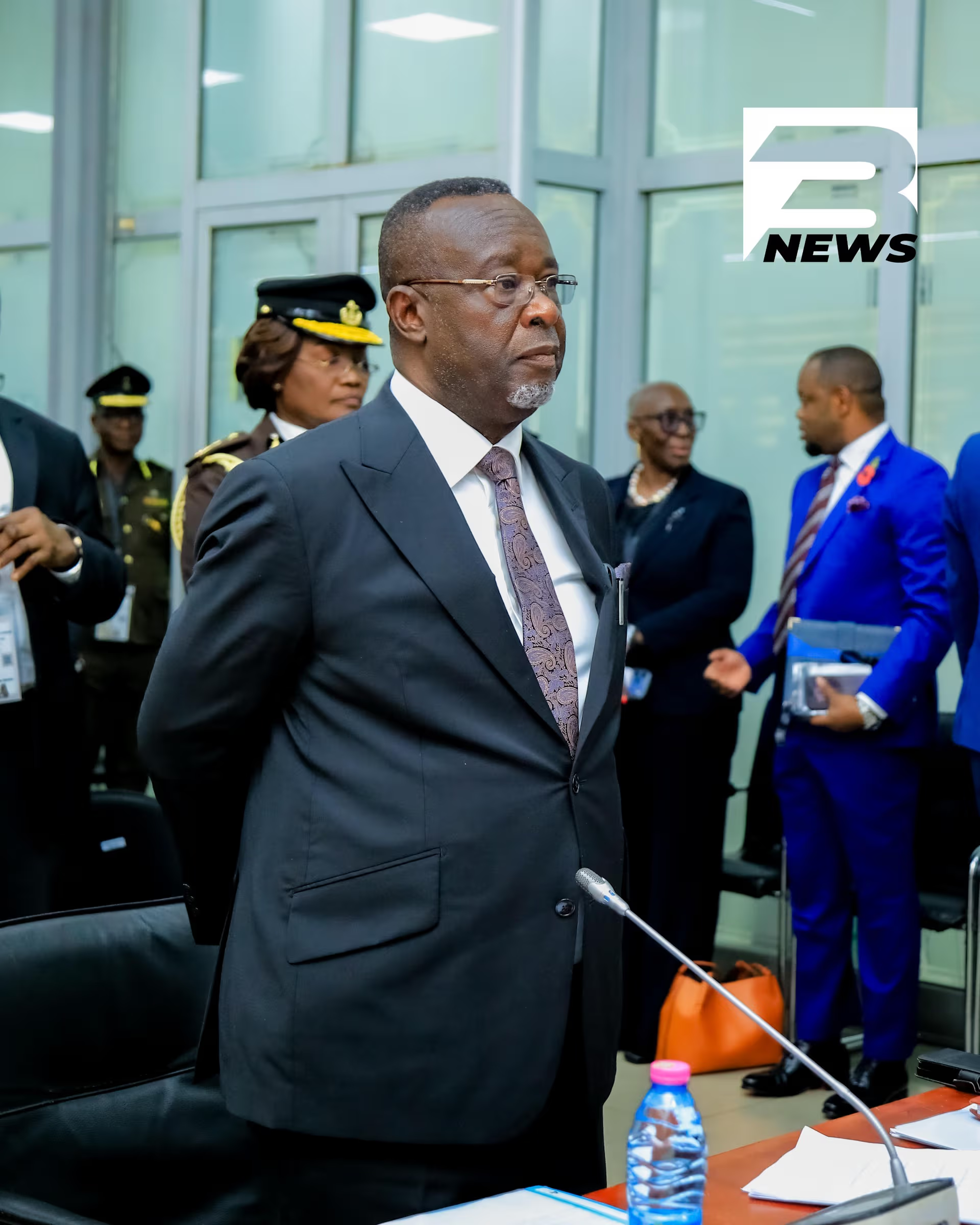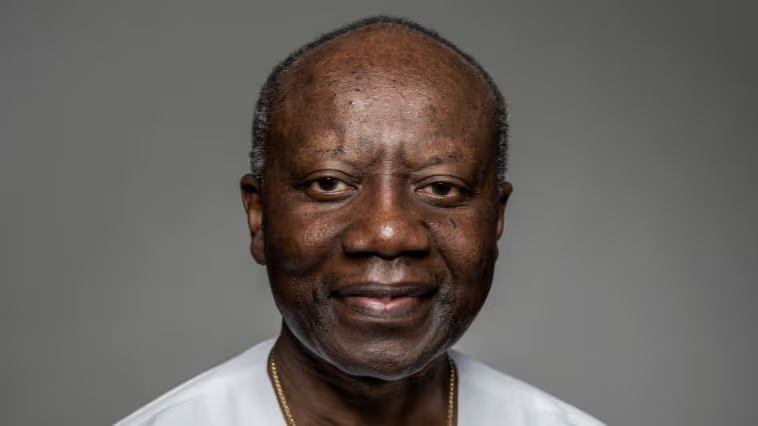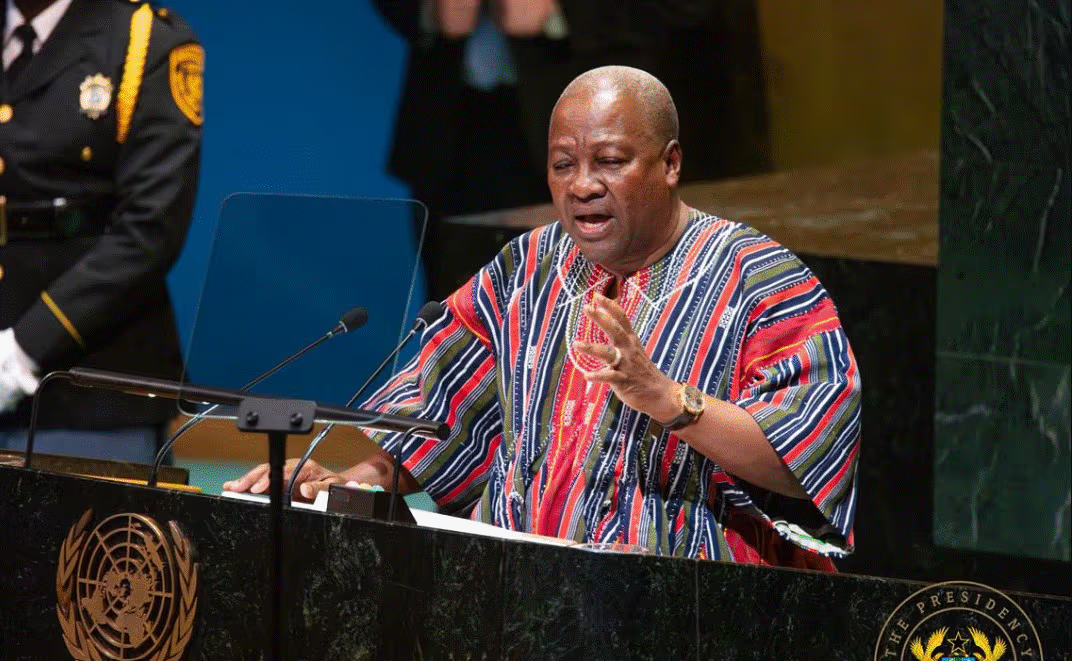Parliament has, through a head count, approved the nomination of Justice Paul Baffoe Bonnie as the Chief Justice of the Republic of Ghana.
Parliament approved him on Thursday, November 13. 163 members of the Majority were counted while the Minority recorded 69 members.
“I urge the nominee to take all that has been happening, from the nomination to the approval, into consideration in his tenure of office,” the Speaker, Alban Bagbin, said after the approval on Thursday.
Prior to the ehadcount, the Minority Leader, Alexander Afenyo-Markin, had pushed for a secret ballot for the approval or otherwise of the Chief Justice nominee, Justice Paul Baffoe-Bonnie.
He made the point that there are some members of the Majority who even have problems with the nomination of Baffoe-Bonniee, so they will want to express that in a secret ballot.
“We leave everything to posterity, everything we witness is for posterity…we are going to demand a secret ballot to vote on this [approval of Baffoe-Bonnie’s nomination]. We know there are members on their side who have their own views and want to express them when there is a secret ballot,” he said in Parliament on Thursday, November 13.
Afenyo-Markin also said that the fact that the prima facie case against the former Chief Justice Gertrude Torkornoo remains unpublished by the government is a concern to the Minority.
He made the point that this is one of the reasons the Minority cannot support the nomination and approval of Justice Paul Baffoe-Bonnie as Chief Justice.
“As we speak, the prima facie case against Torkornoo hasn’t been published. The fact that it hasn’t been published is of concern to us,” Afenyo-Markin said.
He added, “The fact that the recommendation that gave rise to the president’s actions is not public is of concern to us…The fact that there appears to be some rights violations of Gertrude Torkornoo, we in the Minority are unable to support this nomination.”
For his part, the Member of Parliament for Asante Akim Central, Kwame Anyimadu-Antwi, has told Parliament that the Minority opposed the nomination of Justice Paul Baffoe-Bonnie as Chief Justice because there are cases in courts challenging the removal of the former Chief Justice Gertrude Torkornoo, including the ECOWAS court.
He wondered what would happen to the approval of Justice Baffoe-Bonnie if the ECOWAS court rules on the cases and it does not go in favour of the government.
“We indicated to the committee that we were going to vote against the nominee. There are seven separate proceedings at the various jurisdictions, inclusive of the High Court, Supreme Court and ECOWAS courts. Ghana is a member of ECOWAS and a very serious member. Under ECOWAS, we have the ECOWAS parliament and court, and we must respect the court. What will happen if all these pending cases in the court they decided, and it goes against the government,” he told Parliament after the Appointments Committee of Parliament, by a Majority decision, recommended for the approval by Parliament, the Chief Justice nominee.
Chair of the committee Bernard Ahiafor told the house on Thursday that Baffoe-Bonniee demonstrated deep knowledge of the law during his vetting.
“The nominee demonstrated outstanding competence, deep knowledge of the law and a firm grasp of the judicial ethics. He addressed questions posed by the committee with professionalism, clarity and intellectual rigour. The nominee possesses the requisites of qualification.”
Justice Baffoe-Bonnie, the nominee for the office of Chief Justice, appeared before Parliament’s Appointments Committee on Monday, November 10, affirming his qualifications and readiness to lead the Judiciary into an era of renewed confidence and transparency.
The vetting began with controversy when the Minority Leader, Alexander Afenyo-Markin, described Justice Baffoe-Bonnie as a “disputed nominee”.
“We gather to vet the disputed nominee for the office of Chief Justice. This is a case of whether Ghana’s judiciary will remain independent,” Afenyo-Markin stated in his introductory remarks.
The comment drew an immediate objection from the Majority Leader, Maham Ayariga, who insisted, “I am objecting to the term dispute because there is no dispute regarding the nominee before us”.
But in his opening remarks, Justice Baffoe-Bonnie acknowledged the task ahead, which he described as “marked by public skepticism, institutional fatigue, and a growing demand for justice”.
“The Judiciary of Ghana stands at a defining moment. As I appear before you today to be vetted by Parliament, I do so fully aware that this process is not merely a constitutional requirement—it is a national reckoning,” the nominee stated.
He pledged that, subject to his endorsement, he would not merely preserve the Judiciary’s legacy but would actively renew it. “The nation needs a judiciary that does not merely interpret the law; but elevates the nation’s conscience,” he said, vowing to “restore confidence in our judiciary and leave it stronger than I found it”.
Three Pillars of Transformation
Justice Baffoe-Bonnie outlined a comprehensive strategy for judicial transformation anchored on three core pillars:
Procedural Clarity & Predictability: This involves establishing publishable rules and timelines for everything from how cases are assigned to how they are managed.
Efficiency & Accountability: This will be achieved by adopting technology, performance targets, and dashboards to ensure “justice is delivered, not assumed”.
Open Justice: He proposed appropriate streaming, public summaries, and structured communication so that citizens “see the work of the Court, not just its verdicts”.
He also pledged to lead an era of greater transparency, efficiency, and accessibility, ensuring that access to justice “should not depend on who you are or your connections“. His task, he concluded, is to ensure the law “remains both a shield for the weak and a restraint upon the powerful”.
Lending support to the nominee was Court of Appeal Judge Yaw Oppong, who was present in Parliament. Oppong expressed confidence that Justice Baffoe-Bonnie was fully prepared for the process.
“Justice Baffoe-Bonnie has been a Justice of the Supreme Court, from the High Court, Court of Appeal to the Supreme Court for many years. I am certain that he knows the relevant provisions, and he knows what is expected of him,” Oppong told TV3.
He added that since the nominee had been previously vetted as a Supreme Court judge, “he is a veteran in this area”.
Parliament approves Baffoe-Bonnie as Chief Justice
NEWS
|
|
106 views
3 months ago

Comments
Leave a Comment
No comments yet. Be the first to comment!
3News


